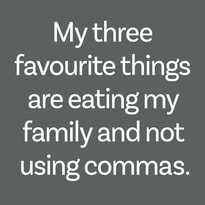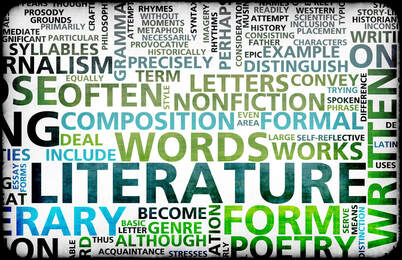 We’ve all been there. Someone makes a grammatical error, a mechanical mistake, a syntactical faux pas. Maybe they used ‘less’ when they meant ‘fewer’, or they misplaced a modifier. Perhaps they said they were doing ‘good’, and you found yourself tempted to scoffingly quote Tracy Jordan from 30 Rock: “Superman does good. You’re doing well. You need to study your grammar, son.” I admit that, when I catch a grammar mistake, I feel a heady mixture of schadenfreude and smug superiority: not only did I witness someone make a grammar mistake, but I was “smart” enough to catch it. We may even feel entitled to call attention to the error, perhaps with an air of superiority. Hopefully we all know this response is unkind, unnecessary, and unproductive. However, depending on your linguistic perspective, it may also be – for lack of a better word – wrong.  Some English linguists, particularly those living in decades and centuries past, are prescriptivists. These scholars believe that there is one right way to speak and write English. Some even believe that an Academy of English should exist to make official rulings on the proper use of the language, much as the Académie Française in Paris does for the French language with hallowed power. (The academy’s board members are literally referred to as “The Immortals”.) While no such institution exists for English, prescriptivists will still refer to grammar rules and dictionary entries as definitive proof that Standard English exists and that other forms of English, such the rural Southern dialect or African-American Vernacular English are incorrect forms, signs of illiteracy or a lack of refinement. However, most linguists today fall into the descriptivist camp. Unlike the prescriptivists, descriptivists do not see forms of English as right or wrong, but rather as fluid, evolving ways of communicating meaning. Descriptivism is a far less judgmental and arbitrary way of understanding language. Rather than saying how English should be used, descriptivists study how English is used. While prescriptivists may be more likely to throw the dictionary at someone for not using a word “correctly,” descriptivists put in the work to actually see how words are used so that linguists can make dictionary entries in the first place.  While descriptivism is likely the best approach to any language, it makes particular sense when applied to English, the most cobbled-together language I can think of. Stitched together over centuries, English is an exquisite corpse with Celtic, Anglo-Saxon, French, Greek, Latin, German, Arabic, and Native American parts. English takes on loan words like I collect thrift store couches: frequently and without too much thought on how they’ll mesh with the pre-existing furniture. English arguably features the most words of any language (if one doesn’t count Spanish’s grammatical inflections or German’s hyper-compound words, which are obviously cheating.) English’s flexibility has made it the unquestioned lingua franca of diplomacy and trade – “lingua franca” being the English term for a chief world language despite it literally meaning “Frankish tongue” in French. That’s how seriously English speakers “borrow” words and make them our own. English isn’t just a language. It’s a giant compressing machine. If any cypher might someday form a linguistic singularity to rival that of the Tower of Babel’s contractors, it would be English, where the rules are made up and – to circle back to the point of this essay – the points don’t matter.  Therefore, in a certain sense, no one speaks English incorrectly. No one writes English incorrectly. Every “mistake” is merely a step in English evolution. If English-speakers one day, centuries hence, find Oliver Twist or The Great Gatsby incomprehensible due to changes in the vernacular, it will be no more a sign of barbarian take-over or “dumbing down” than is our current difficulty reading Beowulf or The Canterbury Tales. To think so would be a delusion based in presentism and ahistorical egotism. That being said, sometimes we do need to enforce the rules of Standard English. In colleges and universities, we need to be able to understand each other quickly, with a sense of clarity, conciseness, and tone that necessarily evolve a bit more slowly than, say, the minimalistic memes of Facebook or frenetic monologues on Tik-Tok. In academia, we avoid slang, not because slang is objectively incorrect, but because slang has not yet achieved the uniformity of meaning that Standard English has, and workaday uniformity allows scholars to share their work around the world and – for the most part – understand the archived knowledge of at least the past few centuries without too much trouble. I have taught Standard English as an SAT/ACT tutor and college instructor for nearly a decade, and I will continue to do so. Standard English has an elegance and clarity that facilitate academic discourse, and I insist my students understand and – in some contexts – conform to that standard. (If your student is struggling with Standard English grammar or composition, please reach out to us at iLearn Academy. We offer test preparation and skill-building sessions for all ages.) If a student wishes to earn good grades, scholarships, and academic success generally, they must master Standard English. However, in most contexts outside academia, if you can understand someone's meaning, they are speaking English correctly. Do not judge someone or their ideas because of imperfect grammar or unorthodox syntax. This is not merely rude and prejudicial, but also ignores the inherently evolving nature of the English language - the very trait that has given it so much beauty, range, and usefulness.
0 Comments
|
Categories |
We make a personal commitment to ensure each student is well-prepared for the academic school year.
Dedicated to helping your student succeed.
©
iLearn Academy 2019


 RSS Feed
RSS Feed
